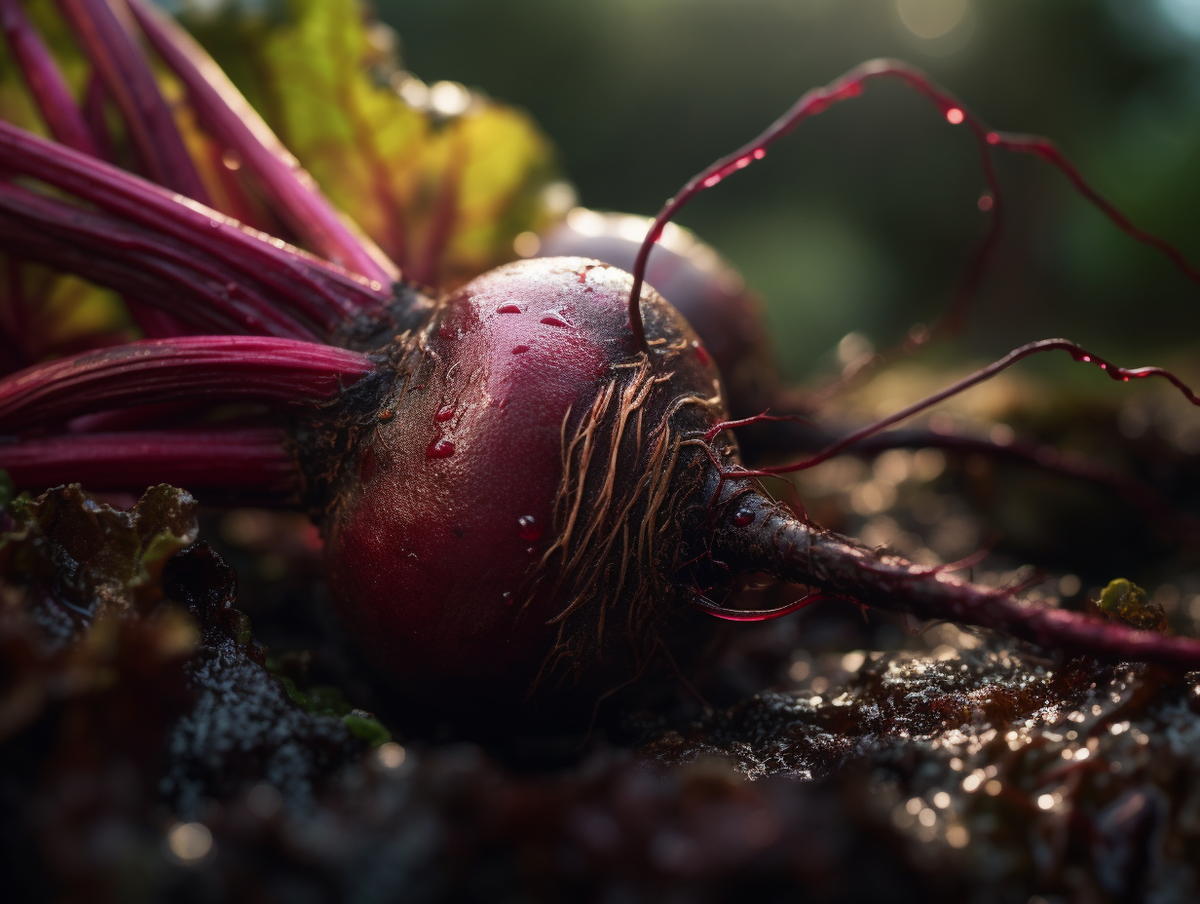Beetroot
- Mushrooms & Roots
Beetroot's vibrant red pigment has been used as a natural dye, while its historical use as a medicinal plant an aphrodisiac and a symbol of good luck, dates back to ancient civilizations.
Beetroots are rich in essential nutrients such as vitamin C, folate, potassium, manganese, and iron, which are crucial for overall health and well-being. The nitrates in beetroot are converted into nitric oxide, which helps relax and widen blood vessels, leading to improved blood flow and reduced blood pressure. This effect can lower the risk of heart disease and enhance cardiovascular health. Additionally, beetroot is recognized for its potential in enhancing exercise performance and endurance, thanks to its nitrate content, which improves oxygen utilization and increases stamina. Moreover, beetroot's nitrates have been linked to better brain health by promoting blood flow and oxygen supply to the brain, potentially enhancing cognitive function, particularly in older adults.
References:
Domínguez, Raúl, et al. "Effects of Beetroot Juice Supplementation on Cardiorespiratory Endurance in Athletes. A Systematic Review." Nutrients, vol. 9, no. 1, 2017, p. 43. doi: 10.3390/nu9010043.
Nyakayiru, Jean, et al. "Beetroot Juice Supplementation Improves High-Intensity Intermittent Type Exercise Performance in Trained Soccer Players." Nutrients, vol. 9, no. 3, 2017, p. 314. doi: 10.3390/nu9030314.
Stanaway, Luke, et al. "Acute Supplementation with Nitrate-Rich Beetroot Juice Causes a Greater Increase in Plasma Nitrite and Reduction in Blood Pressure of Older Compared to Younger Adults." Nutrients, vol. 11, no. 7, 2019, p. 1683. doi: 10.3390/nu11071683.
Rehman, Sidra, et al. "Biochemical Profiling and Elucidation of Biological Activities of Beta vulgaris L. Leaves and Roots Extracts." Saudi Journal of Biological Sciences, vol. 28, no. 1, 2021, pp. 592-602. doi: 10.1016/j.sjbs.2020.10.048. Epub 2020 Nov 4.
